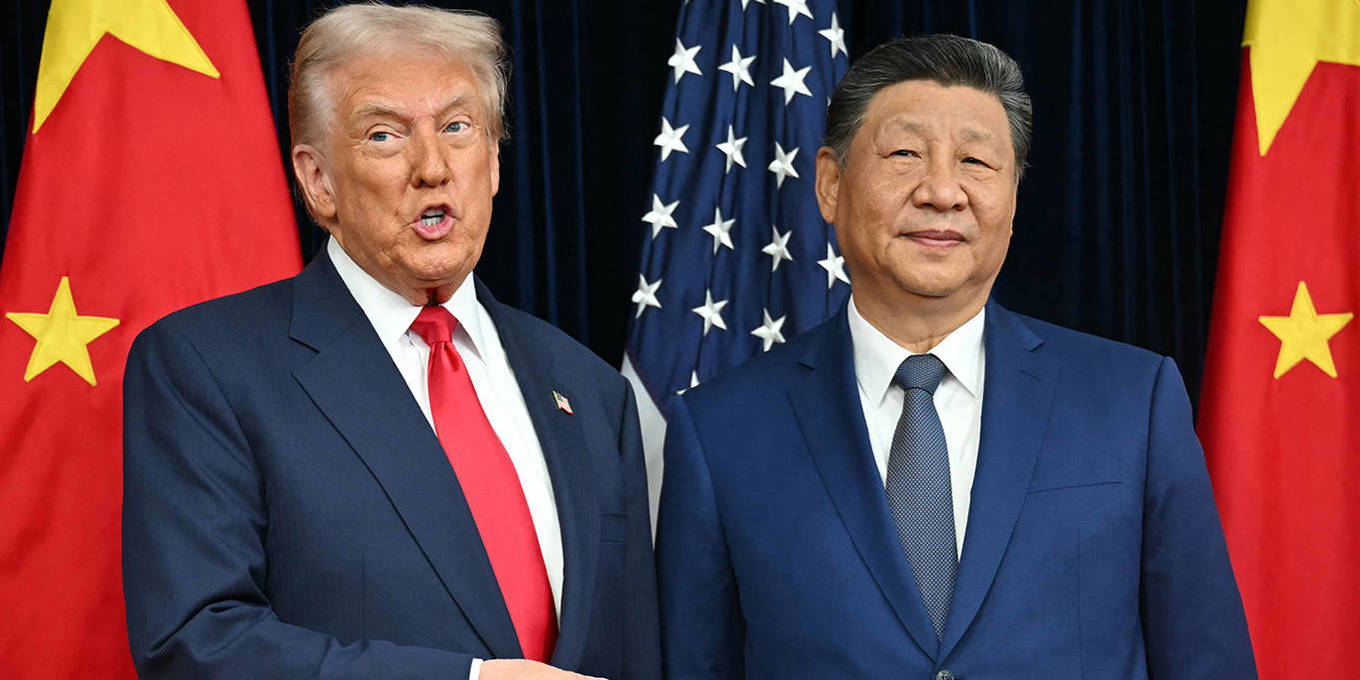Copyright Project Syndicate

BEIJING – According to US President Donald Trump, his recent meeting with Chinese President Xi Jinping – the first of his second term – was “amazing.” Trump may have campaigned on the promise of squeezing America’s biggest geopolitical competitor, but that is not what has happened. Instead, top Chinese academics and retired military leaders whom I spoke to in Beijing this week all agree that Xi’s international strategy has been vindicated, and that an increasingly fractured multipolar world is working very much to China’s advantage. The Chinese view is that we are entering a prolonged phase of counter-globalization. For a country that has relied on export-led growth to lift itself out of poverty, this prospect might seem like a problem. But Chinese leaders are not losing any sleep over it. As they see it, the post-Cold War order sought to create a single global market and promote democracy and human rights through common rules and institutions. Yet instead of a single market, we have a world split into three regional economic blocs: US-led North America (which includes Mexico and Central America); an emerging European sphere still struggling to define itself; and a sprawling Chinese domain comprising members of the Association of Southeast Asian Nations, many parts of South America, countries across Africa, and the rest of the Global South. In place of democracy and human rights, the Chinese anticipate a further spread of autocracy and illiberal democracy. Globalization was supposed to mean that individual rights would trump sovereignty, and liberal democracy would trump autocracy. But as my Chinese interlocutors point out, sovereignty is now consistently trumping human rights. With even the US exhibiting authoritarian characteristics, would-be authoritarians around the world have much less to worry about. Finally, my interlocutors believe that economic fragmentation and the authoritarian turn will facilitate a return to politics driven by rulers’ personal ambition and charisma, rather than by the institutions and rules created after World War II. Geopolitical outcomes already increasingly depend less on structural factors like geography, power dynamics, and resources, and more on leader-to-leader interactions and calculations. Personal interest will continue to replace national interest. There will be deals, not treaties, egos, not ideology. The upshot is that today’s international relations will be more personalized and unpredictable than at any point since before World War I. Back then, the fate of the world hinged on the whims of Czar Nicholas II, Kaiser Wilhelm II, and the Habsburg emperor, Franz Joseph. Today, it is Trump, Xi, Indian Prime Minister Narendra Modi, Saudi Crown Prince Mohammed bin Salman, Turkish President Recep Tayyip Erdoğan, and other such figures calling the shots. The Chinese credit Trump with accelerating the development of this world. His “America First” project, as they see it, combines two objectives. The first is to establish regional security orders, with the United States effectively outsourcing the dirty work of containing great powers. Thus, Europeans will assume the burden of containing Russia, the Japanese and the Australians will do more to contain China, and Israel and the Gulf states will deal with Iran. Trump is then free to concentrate on the second objective: seeking friendly relationships and making deals with the other big leaders – be it Putin in Anchorage, Xi in Busan, or even the Iranian leadership someday. The Chinese, of course, would welcome such an arrangement, since they have long been preparing for a world of disorder. Some even see a once-in-a-lifetime chance to make a deal with Trump on Taiwan, potentially ending the island’s de facto independence in exchange for a vague promise to “freeze” the current regional security order everywhere else. But a world carved into spheres of influence also brings risks, from cutthroat technological competition to various uses of long-arm jurisdiction and secondary sanctions. That is why China has been studying America’s own vulnerabilities and identifying chokepoints that it can exploit (call them trump cards). Its export controls on rare earths clearly caught the Americans off guard and forced them to the table, allowing Xi to clinch a favorable deal with Trump. But as confident as China appears externally, my interlocutors did hint at sources of domestic weakness and fragility. Growth is steadily slowing, consumer confidence is weak, and sky-high local government debts remain a major problem. A striking theme in many of my conversations was the collapse of optimism. Another was the concept of “involution”: the exhausting competition among Chinese companies that has driven prices down so much as to cause deflation. This leads to hyper-consumerism (with electric vehicles losing half their value in the space of a few months), hyper-competition among students, and a sense among most workers of “running to stand still.” Individuals across all social classes feel trapped and anxious. The young, especially, no longer believe they will be better off than their parents. China’s real test may lie not in yet-to-be-defined contours of a new global order, but in how Xi manages the paradox between external vigor and internal fragility.



